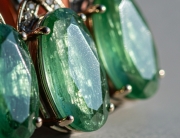Dubai’s rapid urban expansion, iconic skyline, and infrastructural marvels are testaments to the extensive use of advanced construction techniques and materials. Among these, construction chemicals play a pivotal role in ensuring the longevity, strength, and resilience of structures. However, the unique environmental conditions in Dubai pose a host of challenges for the effective application and performance of these chemicals. From extreme heat to high humidity and saline air, the region demands tailored solutions and expert formulations.
This blog delves into the top challenges in using construction chemicals in Dubai’s harsh climate, providing insights into the concerns that contractors, engineers, and construction chemicals manufacturers in UAE must navigate.
Understanding Construction Chemicals
What Are Construction Chemicals?
Construction chemicals are chemical compounds used to enhance the properties of construction materials. These include admixtures for concrete, waterproofing agents, sealants, grouts, and protective coatings. Their functions vary from improving workability and setting time to enhancing durability and resistance to environmental damage.
Importance in the UAE Market
Given the UAE’s ambitious infrastructure projects and architectural scale, the role of construction chemicals becomes increasingly significant. From skyscrapers to underwater tunnels and bridges, construction chemicals ensure structural integrity and sustainability.
Harsh Climatic Conditions of Dubai
Extreme Temperatures
Dubai experiences summer temperatures that often soar above 45°C (113°F). This intense heat affects not just workers but also the curing and performance of many construction materials and chemicals.
High Humidity and Salinity
Being close to the Arabian Gulf, Dubai’s atmosphere is laden with humidity and saline air. These elements accelerate corrosion and deteriorate materials that are not adequately protected or formulated for such exposure.
Sandstorms and Dust
Frequent sandstorms lead to the accumulation of dust on surfaces, which can hinder the bonding and effectiveness of surface-applied chemicals such as sealants and coatings.
Top Challenges in Using Construction Chemicals in Dubai
1. Temperature Sensitivity of Chemicals
Many construction chemicals, including PU sealants and epoxy coatings, are sensitive to extreme temperatures. High heat can alter their viscosity, curing time, and bonding properties.
- For example, PU sealant manufacturers need to develop formulations that retain elasticity and adhesion even when exposed to direct sunlight and high ambient temperatures.
- Accelerated curing due to heat can lead to cracking, especially in sealants and grouts, which compromises structural safety.
2. Reduced Shelf Life
Chemical products stored or transported in non-climate-controlled conditions in Dubai are at risk of premature degradation.
- Shelf life becomes a critical factor, especially for products like admixtures, waterproofing membranes, and bonding agents.
- Manufacturers and suppliers must invest in temperature-controlled logistics to prevent product failure.
3. Application Issues Due to High Humidity
Humidity in Dubai, particularly during certain seasons, interferes with the application and curing of various construction chemicals.
- Waterproofing materials and coatings may not bond effectively to substrates if applied in high-humidity conditions.
- Surface moisture leads to bubble formation, poor adhesion, and blistering in coatings and paints.
4. Accelerated Chemical Reactions
The combination of heat and moisture in the air speeds up chemical reactions during application.
- This affects the working time of epoxy resins, grouts, and sealants.
- Contractors need to work quickly, increasing labor costs and error potential.
5. Substrate Preparation Challenges
Dust and fine sand particles from frequent sandstorms settle on surfaces and interfere with the adhesion of chemicals.
- Improper cleaning can result in delamination of waterproofing layers and coatings.
- Frequent re-cleaning delays project timelines and increases material wastage.
6. Corrosion Due to Salinity
Chloride ions in the saline air significantly increase the rate of corrosion in reinforced concrete structures.
- To counter this, construction chemicals manufacturers in UAE develop corrosion-inhibiting admixtures and protective coatings for rebar.
- However, if not applied correctly or selected based on local exposure conditions, corrosion still occurs, leading to costly repairs.
7. Compatibility with Local Building Materials
Not all chemicals are universally compatible with the aggregates and cement used in the region.
- Cement composition in Dubai may differ due to local raw materials, affecting the performance of certain admixtures and bonding agents.
- Compatibility testing becomes essential, delaying procurement and increasing costs.
8. Regulatory Compliance and Testing
Dubai Municipality and other regulatory bodies have stringent requirements for construction materials, especially chemicals.
- Products must be certified and tested under UAE-specific climatic conditions.
- This adds an extra layer of cost and complexity for construction chemicals manufacturers in UAE who want to enter the market or introduce new products.
9. Skilled Application Workforce
The effectiveness of construction chemicals often depends on precise mixing, application, and curing.
- Inexperienced or untrained labor may lead to improper mixing ratios, wrong curing times, or poor surface preparation.
- This challenge is heightened by the transient nature of labor in Dubai’s construction sector, necessitating constant training.
10. Environmental and Sustainability Pressures
Dubai’s push toward sustainability and green buildings adds another layer of responsibility for chemical manufacturers and users.
- VOC content, biodegradability, and thermal performance of chemicals are increasingly scrutinized.
- Environmentally friendly options often have higher costs or performance trade-offs, complicating material selection.
Specialized Challenges for PU Sealants
Why PU Sealants Are Common
Polyurethane (PU) sealants are widely used in Dubai for their flexibility, adhesion, and weather resistance. They are applied in joints, expansion gaps, and as general-purpose sealants in both residential and commercial buildings.
Issues Faced in Dubai
- Thermal Expansion and Contraction: Wide temperature variations between day and night cause substrates to expand and contract significantly. PU sealants must maintain flexibility without cracking.
- UV Exposure: Prolonged exposure to sunlight can degrade standard PU formulations, leading to discoloration and surface chalking.
- Adhesion Failure: Sand and dust prevent effective adhesion, especially if surface preparation is not thorough.
- Inconsistent Curing: High humidity may delay or accelerate curing inconsistently across the application, affecting seal integrity.
To address these, PU sealant manufacturers are constantly innovating with UV-resistant additives, hybrid polymers, and fast-curing technologies suitable for arid climates.
Strategies to Overcome These Challenges
1. Localized Product Development
Construction chemicals manufacturers in UAE benefit from developing formulations specifically designed for Gulf conditions.
- This includes testing in simulated local environments and modifying existing products to meet the unique climate requirements.
2. Training and Education
Proper application is key to performance. Investment in training for applicators, contractors, and site supervisors ensures correct usage.
- Hands-on workshops and multilingual product manuals are vital tools.
3. On-Site Testing and Mock-Ups
Before full-scale application, conducting mock-ups and on-site testing can reveal performance issues in advance.
- This allows time to tweak application techniques or select alternative products.
4. Enhanced Logistics and Storage
Ensuring a temperature-controlled supply chain can extend the usability of temperature-sensitive products.
- Warehouses and transport vehicles should be equipped to maintain optimal storage conditions.
5. Use of Advanced Sealant Technologies
Hybrid sealants, such as silyl-modified polymers (SMPs), offer better UV resistance and temperature flexibility than standard PU sealants.
- These are gaining traction as high-performance alternatives in the UAE market.
Future Outlook
Dubai’s construction boom is not slowing down. Mega-projects like Dubai Creek Tower, Museum of the Future, and new smart city developments mean the demand for high-performance construction materials will remain high.
Construction chemicals manufacturers in UAE must continue to innovate, collaborate with contractors, and stay abreast of local regulations. Similarly, PU sealant manufacturers need to prioritize R&D and produce materials that can withstand the city’s harsh realities while supporting sustainable building practices.
Final Thoughts
Dubai’s unique environment—marked by scorching temperatures, high humidity, salty air, and constant dust—poses serious challenges in the use of construction chemicals. These issues affect everything from shelf life and curing to performance and long-term durability.
However, the market is also highly adaptive. With focused innovation, localized product development, and proper training, it is possible to mitigate these challenges. As demand for more advanced, sustainable construction solutions grows, construction chemicals manufacturers in UAE and PU sealant manufacturers have a critical role to play in building a resilient, future-ready Dubai.





Leave A Comment